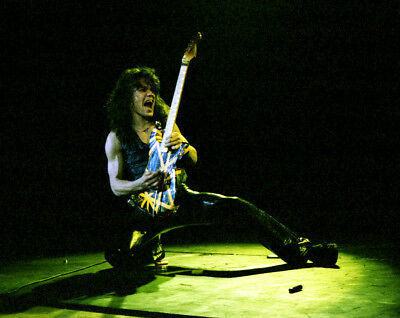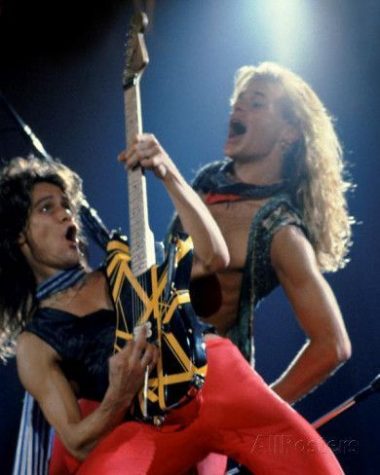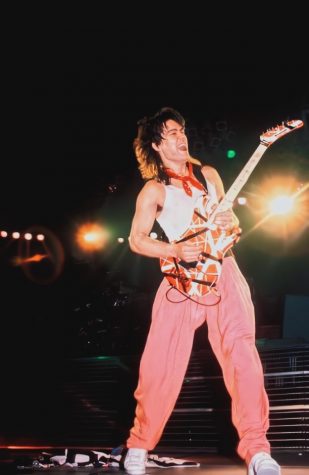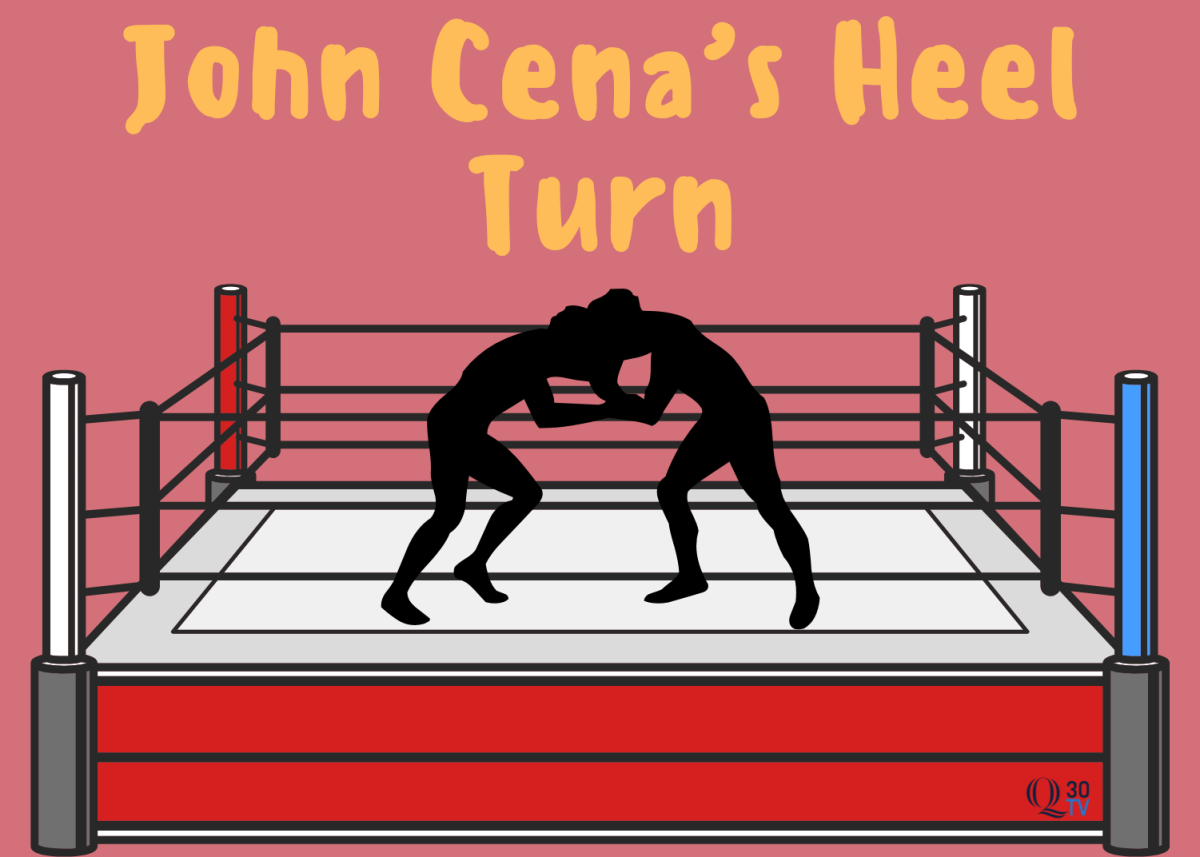Eddie Van Halen’s influence on rock music

St. Paul Civic Center, 1979
October 26, 2020
It is coming up on a month since Eddie Van Halen passed away from his long battle of lung cancer and as per usual, their influence begins to set in once you know they are gone. David Bowie and Michael Jackson became even more important to me once they passed, now feeling obligated to study their music. I had never listened to Van Halen religiously, and surprisingly enough I was not a fan. My father always told me Sammy Hagar was the better frontman to Van Halen than David Lee Roth ever was, drilled that into my head anytime we heard an early Van Halen song play on the radio.
The only Van Halen song that ever ended up in any of my rock playlists growing up was “Eruption”, the one minute and forty-two-second guitar solo that introduced Eddie Van Halen to the world. A song with no words, you had to respect that song. I was not into the theatrics David Lee Roth brought to the stage and did not like the direction he helped bring Van Halen to in the 80s, but if you were a rock fan or a music fan in general, there was no way you would not be impressed and utterly stunned by Eddie tapping away at his guitar.
When Van Halen’s debut album “Van Halen” was released in February of 1978, Eddie’s guitar solo “Eruption” easily became one of the most iconic guitar solos to any aspiring guitarist and in rock music in general. It changed the whole foundation of what a guitarist could play and shaped hard rock. No one could comprehend how he was playing that fast, but it turned out Eddie was playing with two hands, called the two-hand tapping technique that many professional guitarists credit him for popularizing. While guitarists like Jimmy Page played one-handed in songs like “Heartbreaker”, Van Halen said “I thought, ‘I can play like that, and you wouldn’t know if I was using this finger or this one.’ But you just move it around and it’s like, ‘You’ve got one big hand there, buddy. That’s a hell of a spread.’”
Eddie Van Halen was born in the Netherlands in 1955 to a musical family. His father Jan van Halen was a Dutch jazz pianist, clarinetist, and saxophonist and at an early age signed him and his brother Alex Van Halen up for piano lessons once they relocated to Pasadena, California. Like playing the piano, Eddie used his piano lessons in approach when learning the guitar, playing both hands. His brother Alex, drummer of Van Halen, told him to play backward before they were signed and released their first album, so people wouldn’t mimic what made Eddie famous.
The “Van Halen” album came at a time when disco music was the most popular genre and if not disco, punk music. Rock music artists like the Rolling Stones and Led Zeppelin were touring and still creating music, but rock was transforming into a ton of subgenres. A lot of artists at the time had to adapt to where the 70s music was headed, which is why this album was even more surprising when it was released. Hard rock musicians like AC/DC and Motörhead were gritty and the slower, more masculine sounding Deep Purple were well into their music careers and were the definitive opposite of the disco artists ABBA and Bee Gees, they were loud and played hard. Van Halen didn’t only play hard but they played fast and were on a new level of energetic.

With the number of different genres, there were many different guitarists to idolize at the time. Punk fans admired the Sex Pistols’ Johnny Rotten and the Ramones’ Johnny Ramone. Classic rock fans admired Eric Clapton and Jimmy Page. While the guitar was proficient in every rock song in the 70s, Eddie Van Halen peaked in right at the end and made a name for himself right off the bat, fitting himself into the list of one of the greatest guitarists of all time.
His guitar playing changed the game for future hard rock guitarists. The band Extreme’s lead guitarist Nuno Bettencourt praises van Halen saying this type of playing was so “alien” to him. He influenced an entirely new generation of rock music, especially hard rock that came out in the 80s. Zakk Wylde, Ozzy Osbourne’s lead guitarist, also recounts that he couldn’t believe the sound was a guitar when he initially heard it.

Eddie makes every song he is in memorable and when I look back at any song with him on guitar, I will remember the song by him absolutely shredding. The “Thriller” album very much reminded me of Jackson’s “Off The Wall” still consisting of that disco and soul sound that was the 70s but I felt that carried through into his second album produced by Quincy Jones. When Jones called Van Halen up and got him in the studio, Jones told him to do “anything he wanted”. Van Halen joked saying that he should be careful telling him to do anything he wanted. As he listened to “Beat It” the first time he changed up the song and improvised two guitar solos. When the record came out he was not credited as the guitarist and did not appear in the music video. He said after the song was released he went into a record store and saw a group of teenagers listening to the song and they said “Listen to this guy trying to sound like Eddie Van Halen”. Even his bandmates didn’t know he had agreed to play guitar for Jackson, making excuses as to why he did not bring it up to them.
Eddie was someone who took guitar to the next level when guitar was branching out in all genres when guitar solos became less necessary to be commercially successful within a band’s album. I know a few years down the line when I think about Eddie Van Halen again I will go straight to Youtube and look up him playing “Eruption” with that grin on his face, making history.






